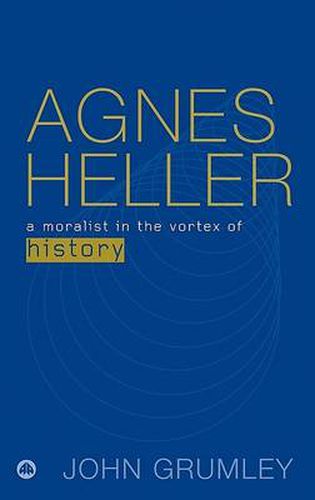Readings Newsletter
Become a Readings Member to make your shopping experience even easier.
Sign in or sign up for free!
You’re not far away from qualifying for FREE standard shipping within Australia
You’ve qualified for FREE standard shipping within Australia
The cart is loading…






Agnes Heller is one of the leading thinkers who have come out of the tradition of critical theory. Her awesome intellectual output covers a broad range of subjects, including ethics, political philosophy and philosophy of history. Hungarian by birth, Heller was one of the best-known Marxists in Central Europe in the 1950s and 1960s. For the last two decades she has taught in New School University in New York, and has a substantial intellectual following. This introduction to the range of Heller’s thought is ideal for all students of political theory and philosophy. Grumley explores Heller’s early work, elaborating on her version of Marxism and her relation with Lukacs. He examines her subsequent break with Marxism and the development of her alternative vision of radical philosophy. Finally, Grumley explains Heller’s mature work, an oeuvre that is both sceptical and utopian, that holds to communitarian hope just as it critiques contemporary democratic culture.
$9.00 standard shipping within Australia
FREE standard shipping within Australia for orders over $100.00
Express & International shipping calculated at checkout
Agnes Heller is one of the leading thinkers who have come out of the tradition of critical theory. Her awesome intellectual output covers a broad range of subjects, including ethics, political philosophy and philosophy of history. Hungarian by birth, Heller was one of the best-known Marxists in Central Europe in the 1950s and 1960s. For the last two decades she has taught in New School University in New York, and has a substantial intellectual following. This introduction to the range of Heller’s thought is ideal for all students of political theory and philosophy. Grumley explores Heller’s early work, elaborating on her version of Marxism and her relation with Lukacs. He examines her subsequent break with Marxism and the development of her alternative vision of radical philosophy. Finally, Grumley explains Heller’s mature work, an oeuvre that is both sceptical and utopian, that holds to communitarian hope just as it critiques contemporary democratic culture.